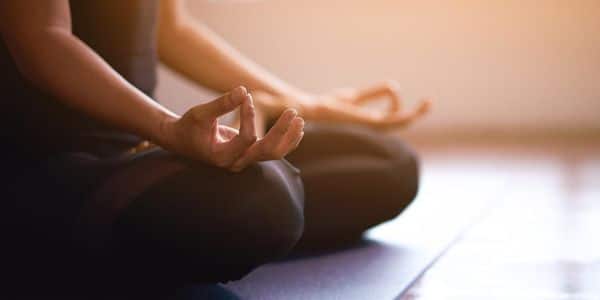The ancient tradition of yoga was heralded as a good medicine for the body. Multiple studies show that yoga helps regulate blood glucose levels, improves muscle-skeletal disorders, moderates the nervous system, and regulates the cardiovascular system. Yoga improves symptoms of generalized anxiety disorder, chronic nervousness, and anxiety, suggesting that popular practice may be helpful in treating anxiety in some people.
A new study, led by researchers at NYU Grossman School of Medicine, found that yoga was significantly more effective for generalized anxiety disorder than standard stress management education, but not effective as cognitive behavioral therapy (CBT), the gold standard form of structured talk therapy that helps patients identify negative thinking for better response to challenges.
Yoga appears to modulate stress response systems by reducing perceived stress and anxiety. This, in turn, reduces physiological excitement—for example, lowering heart rate, lowering blood pressure, and easing breathing. There is also evidence that yoga practices help increase the variability of the heart rate, an indicator of the body’s ability to respond more flexibly to stress.
A new study finds yoga improves symptoms of generalized anxiety disorder, suggesting the popular practice may be helpful in treating anxiety in some people. Research suggests that this practice modulates the stress response.
“Generalized anxiety disorder is a very common condition, yet many are not willing or able to access evidence-based treatment,” says lead research author Naomi M. Simon, MD, professor at the Department of Psychiatry at NYU Langone Health. “Our findings show that yoga, which is safe and widely available, can improve symptoms for some people with this disorder and could be a valuable tool in the overall treatment plan.”
For the study, which was published online on August 12 in JAMA Psychiatry, 226 men and women with a generalized anxiety disorder were randomly assigned to three groups – either CBT, Kundalini Yoga, or stress management education – a standardized control technique. After three months, both CBT and yoga were found to be significantly more effective for anxiety than for stress management. Specifically, 54% of those who practiced yoga met the response criteria for significantly improved symptoms compared to 33% in the stress-education group. Of those treated with CBT, 71 percent met these criteria for symptom improvement.
However, after six months of follow-up, the CBT response remained significantly better than stress education (control therapy), while yoga was no longer significantly better, suggesting that CBT may have more robust, longer-lasting anxiety-reducing effects.

Details of the study
The study involved an evidence-based CBT treatment protocol for generalized anxiety disorder, including psychoeducation, cognitive interventions (focused on identifying and adapting ill-adapted and worrying thoughts), and muscle relaxation techniques. Kundalini yoga included physical postures, breathing techniques, relaxation exercises, yoga theory, and meditation/mindfulness.
The stress management education control group received lectures on the physiological, psychological, and medical effects of stress, as well as the anti-anxiety effects of lifestyle behaviors, such as the reduction of alcohol and smoking, and the importance of exercise and a healthy diet. Homework consisted of listening to stress, nutrition, and lifestyle educational materials. Each treatment was administered in groups of three to six participants during weekly two-hour sessions of 12 weeks with 20 minutes of daily homework assigned.
Can Yoga Help Treat Anxiety?
According to researchers, generalized anxiety disorder is a common, impaired, and undertreated condition that currently affects an estimated 6.8 million Americans. While most people feel anxious from time to time, it is considered a disorder when worry becomes excessive and interferes with everyday life. CBT is considered to be the gold standard first-line treatment. Drugs, including antidepressants and sometimes benzodiazepines, may also be used. However, not everyone is willing to take drugs that may have adverse side effects and there are challenges in accessing CBT for many, including lack of access to trained therapists and long waiting lists.
“Many people already seek complementary and alternative interventions, including yoga, to treat anxiety,” says Dr. Simon. “This study suggests that at least short-term there is significant value for people with a generalized anxiety disorder to give yoga a try to see if it works for them. Yoga is well-tolerated, easily accessible, and has a number of health benefits.”
According to Dr. Simon, future research should aim at understanding who is most likely to benefit from yoga for generalized anxiety disorder in order to help providers better personalize treatment recommendations. “We need more options for treating anxiety, because different people will respond to different interventions, and having more options can help overcome barriers to care,” she says. “Having a range of effective treatments can increase the likelihood that people with anxiety will be willing to engage in evidence-based care.”















